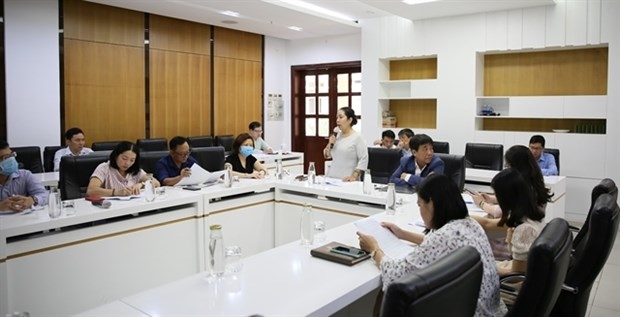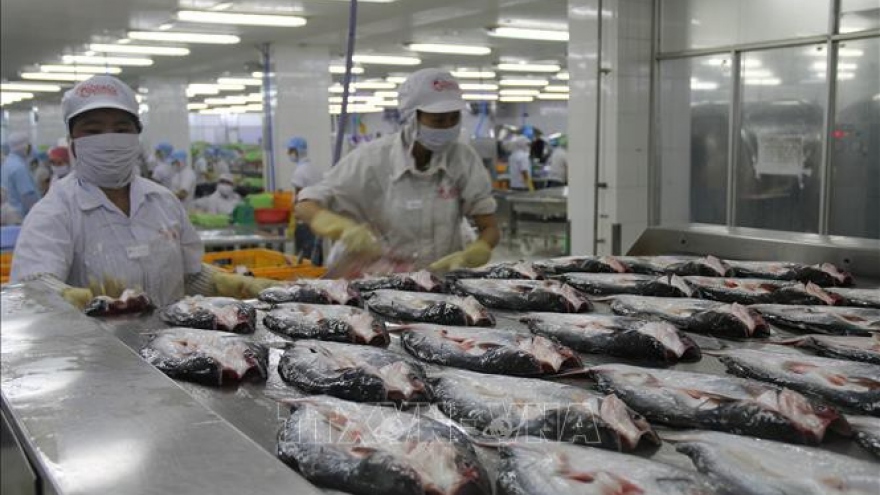HCM City improves management of food safety, traceability of farm products
A new Ho Chi Minh City regulation would make it mandatory for all agricultural products and foodstuffs to have traceability and geographical indications, and require packaging and branding under VietGAP standards to ensure food hygiene and safety.

The new regulation, if approved, will be applied to retailers, wholesalers and distribution systems in the city.
Speaking at a workshop held last week in the city, Nguyen Huynh Trang, deputy director of the municipal Department of Industry and Trade, said the city was working with the Food Safety Management Board to pilot an integrated food-safety management model for agricultural products and foodstuffs in the city and the southern key economic region.
The model requires cooperation between linkages associated with the sale of agricultural products via value chains to ensure food safety, she said.
Currently, HCM City and the provinces in the southern key economic region only conform to biosafety production standards because of a legal requirement. In addition, the application of VietGAP standards is still not compulsory.
Over the years, the city has promoted effective management of production and consumption chains of agricultural products, with traceability and geographical indications to ensure food hygiene and safety for consumers.
However, the production scale remains small, and products, mostly raw ones, are only preliminary processed.
The number of enterprises heavily investing in agricultural production still accounts for a low rate. In addition, wholesale markets associated with concentrated production areas have not developed in a coordinated way.
The city’s food safety management is overseen by its Food Safety Management Board and Department of Agriculture and Rural Development.
Food-safety project
Tran Tien Khai, head of the project management board at the HCM City University of Economics, said the city has assigned the university to work with the Department of Industry and Trade and localities in the region on a project “to enhance cooperation and production linkages associated with the consumption of agricultural products to ensure food safety”.
The project will propose solutions to increase quality and yield in sustainable food value chains to ensure food safety for the domestic market as well as for exports, he said.
Trang said it was important to connect production and consumption of agricultural products, especially high-quality agricultural products.
Linking businesses with farmers would help the latter sell products at stable prices and reduce risks, she said.
Farmers receiving investment from companies would receive agricultural seeds and materials at low interest rates and with more reliable quality. As a result, farmers would be able to better assure production and implement technical measures, and increase productivity and output.
Farmers would also be able to organise production on a larger scale and volume, lowering production costs and increasing incomes.
For their part, companies would offer farmers commitments on quantity, quality, and time for product supply through affiliate contracts, according to Trang.
Recently the city People’s Committee proposed a plan worth more than VND840 billion (US$36.5 million) to ensure food safety in the city’s agricultural sector over the next five years to the Ministry of Planning and Investment and the Ministry of Finance.
Under the plan, the food-safety management system and infrastructure would be improved, and as a result, would help reduce food poisoning cases, disease and pollution. Of the total investment, nearly US$30 million is sourced from ODA loans, while the remainder comes from the city budget.
The southern key economic region includes HCM City and the provinces of Dong Nai, Binh Duong, Ba Ria-Vung Tau, Binh Phuoc, Tay Ninh, Long An and Tien Giang.
The region has a population of more than 20 million. Each year the region consumes up to 1.5 million tonnes of rice, 500,000 tonnes of meat, 800,000 tonnes of seafood, 3 million tonnes of vegetables, and 1,500 million eggs.


